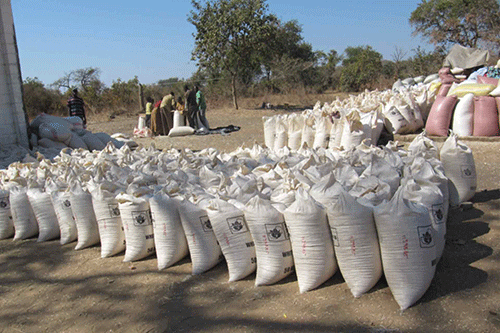The police in the Zambezi confirmed maize smuggling into the region from neighbouring Zambia through ungazetted entry points has been on the decline.
Over the past few months, the residents in Zambezi opted to buy smuggled maize meal from Zambia, which enters via non-designated border points because it is cheaper than locally produced maize.
The situation has been exacerbated by skyrocketing food and fuel prices.
Zambezi community policing unit commander Kisco Sitali attributed the sharp decline to local farmers selling their maize surpluses to private millers.
“This is the time Agronomic Board opens the markets to allow millers to import maize from elsewhere, such as South Africa, Zambia and Botswana. Hence, we don’t really see a lot of people smuggling maize because millers are going into those countries to buy the maize directly. The farmers sold all their maize surpluses, and they don’t have anything in their silos,” Sitali noted. For the past three months, he said there has been an increase in the price of maize sold by millers. A 25kg of maize meal is sold for N$220 by millers, compared to the normal price of N$185.
“We have seen an increase of maize meal in Katima Mulilo from our millers. This has exacerbated the smuggling of these products from our neighbouring countries, where they are cheaper, compared to our local markets here. It is estimated to be sold at N$70 to N$100 per 25 kg, compared to N$220 sold in Namibia,” he stated.
However, he admitted there are isolated incidences where some individuals are smuggling their own consumption or using it as livestock fodder.
According to him, such isolated cases of maize smuggling have been observed alongside the border on the eastern part of Katima Mulilo.
This is the area stretching from Musanga to the Impalila Island.
The police continue to conduct border patrols on a daily basis to intercept illegal activities.
“We have seen a number of commodities, such as beans, groundnuts, peanuts, tomatoes, onions and sweet potatoes being smuggled into Namibia and sold on the black market,” he reported.
After the police confiscate these commodities, they rope in health inspectors from the region to inspect the products before they issue a disposal order.
In most cases, Sitali said these goods, especially the perishable ones, are either destroyed, while those with value are sold off on public auction.
Other items that were seized during police operations include counterfeit tobacco goods as well as medicinal, hair and beauty products. These items are normally booked while a disposal order is being issued.
In Zambia, the government buys the majority of maize directly from farmers through the food reserves agency.
Since 2004, Zambia has consistently cultivated more maize – the national staple – than is consumed domestically.
However, despite self-sufficiency in food production, maize prices are volatile, which leads to continuous smuggling of maize meal into neighbouring countries, such as Namibia and the Democratic Republic of Congo (DRC).
– anakale@nepc.com.na
Pic: maize
Caption:
Ease off… Smuggled maize on the decline in the Zambezi region.
Photo: Contributed



